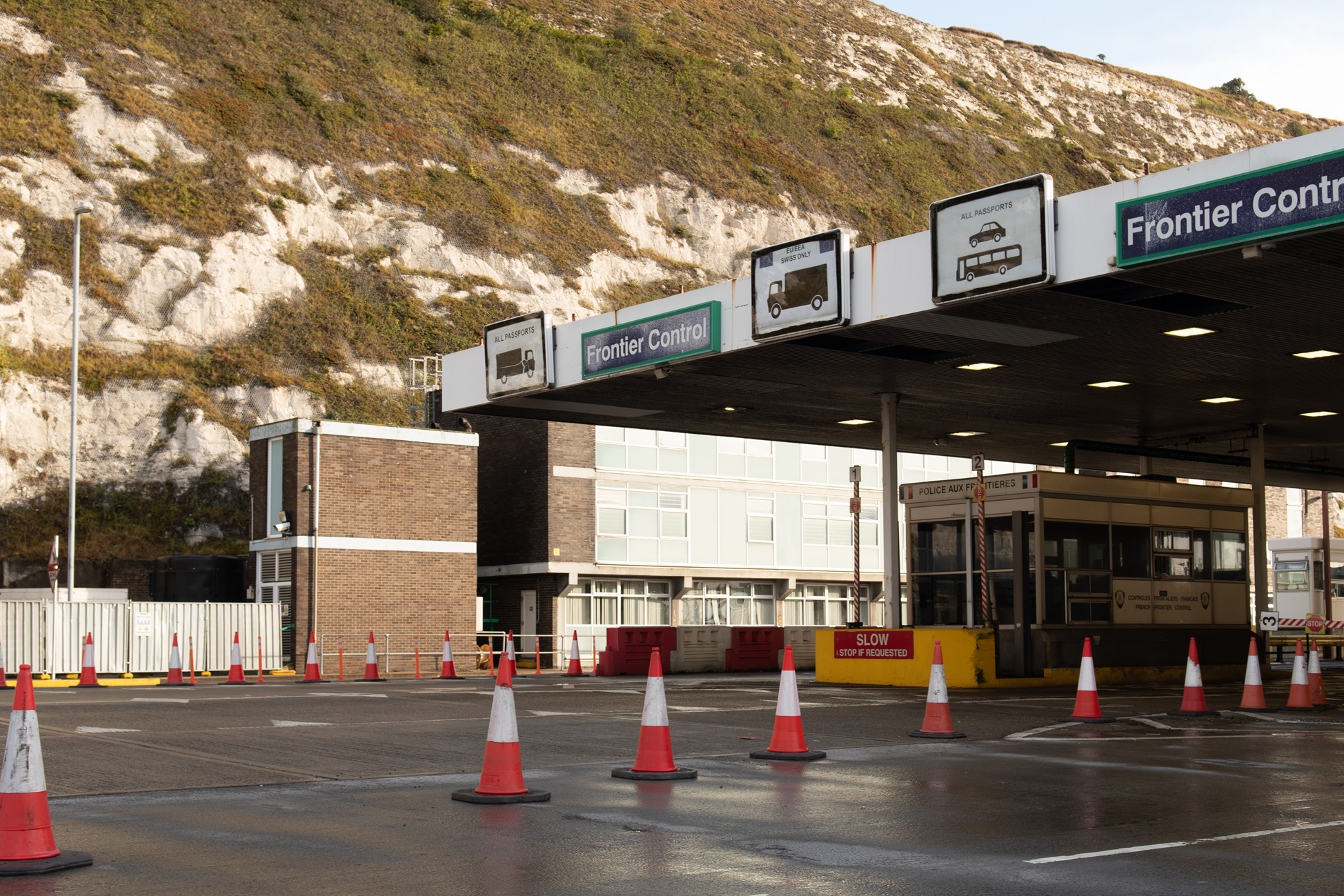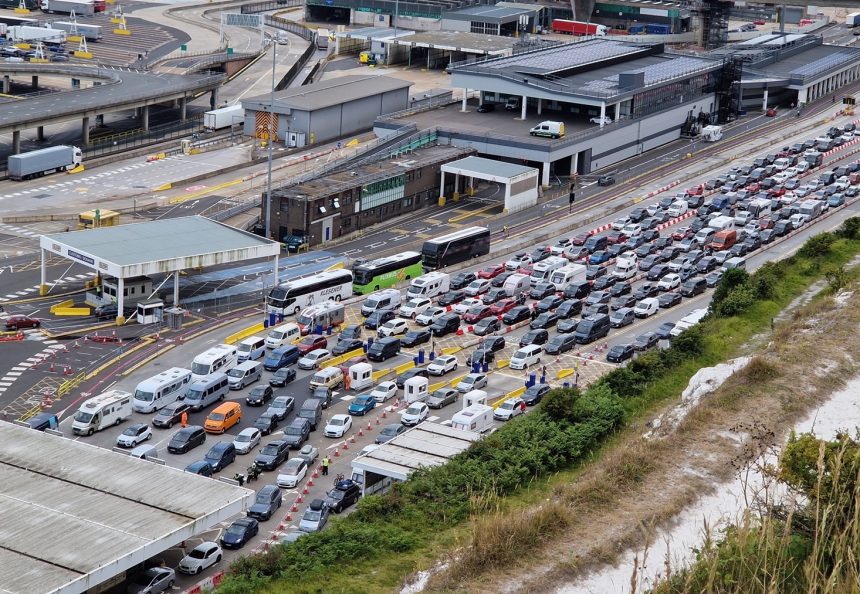Ministers must take “urgent action” to prevent severe disruption at juxtaposed border controls in the Port of Dover after introduction of the Schengen area EU Entry/Exit Scheme (EES), local authorities (LAs) in Kent have said.
In a letter to Home Secretary Yvette Cooper and Secretary of State for Transport Louise Haigh, all 14 of the county’s councils have flagged worries around the impact of EES checks on Dover and throughout Kent when the system comes into force.
That is now expected to be in November. Mainstream media reports claim that 10 November is favoured by the EU, with a backstop of 17 November. In their letter, the LAs have urged the government to work with the EU to find a solution that allows travellers passing through the Port of Dover to be processed quickly.
While majoring on the disruption caused in Kent by problems at the Port of Dover, the letter highlights the wider costs of such hold-ups to businesses. Eurotunnel – which has limited interest in coach groups – has created an area within its terminal at Folkestone to carry out EES checks.
The councils claim that initial analysis by the Kent and Medway Resilience Forum (KMRF) suggests that the impact of introducing EES checks on tourist traffic crossing from Dover is expected to be worse than delays seen during early April 2022 “and will occur on a regular basis.”
However, the group says that local authorities in Kent have not yet been granted access to analysis of the impact of EES carried out by the government, a position that is affecting their ability to forecast and plan.
“It is inevitable that periods of severe disruption will continue to occur until new ways to manage traffic bound for the continent are found at a national level,” the communication notes. The border at Dover “is extremely fragile and exposed to numerous factors that severely impact the road network.”

The Port of Dover is creating additional space within its site, which has led to the issue of specific instructions to traffic including coaches over the summer. Despite that, the letter observes how scope there is finite and that wider improvements by the Port “are subject to continuing support from central government and will not be fully complete for several years.”
It continues: “The limited space within the Port of Dover, and the fact that EES checks will take more time to process passengers, mean that there could be lengthy delays for all tourist traffic entering the port.”
Additional sites to allow those vehicles to be processed before arrival in Dover have been identified by KMRF. They must be developed rapidly, say the LAs. “Timely government decisions and confirmation about this additional infrastructure are urgently needed. Even if a decision is made in the next few weeks, these sites will not be ready before July 2025.”
In February, the Port of Dover in evidence to the European Scrutiny Committee said that EES as it stood then would bring “huge challenges” and “serious and lasting negative impacts” on cross-border operations, with a worry of the necessary checks overloading the gateway’s ability to process tourism-related business.
An app to collect in advance some of the information required by EES of third country nationals is now set to debut alongside the scheme, with an expectation that it will mitigate some delays at borders. However, several reports have suggested that the app will not be ready in time for an EES launch late in 2024.
In response to publication of the councils’ letter to ministers, freight trade body Logistics UK called on the government to do its utmost to secure “a further extension and a phased approach to the planned implementation of EES this autumn.”
Kent local authorities’ letter to the government in full here.



























